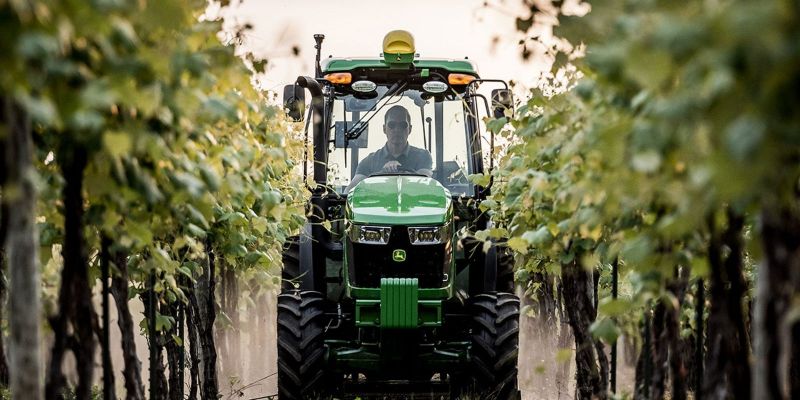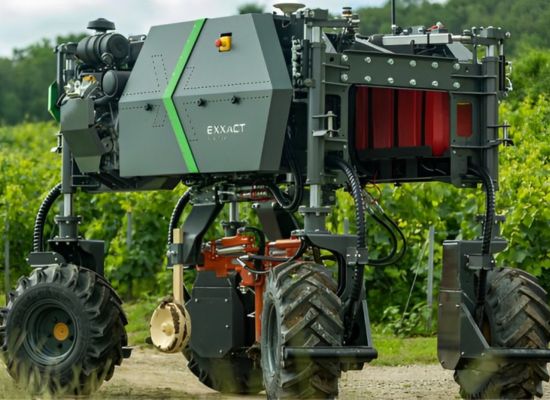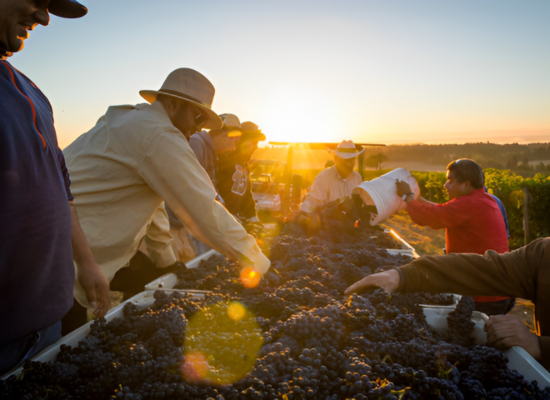Educating Sommeliers Worldwide.
By Beverage Trade Network

In the world of viticulture, the debate between mechanical and manual vineyard work has persisted for decades. With advances in technology, vineyards now have access to sophisticated machinery that can handle tasks ranging from pruning to harvesting. However, traditionalists argue that hand work, with its precision and attention to detail, remains essential for producing top-quality wine. This article delves into the pros and cons of both approaches, examining their impact on wine quality and sustainability.
As the gatekeepers of wine knowledge and service, sommeliers must become informed about the issue of mechanical versus hand work in the vineyard for several reasons. Their role involves not only selecting and serving wines but also educating consumers and enhancing their wine experiences. Understanding the nuances of vineyard practices directly influences their ability to make informed recommendations, appreciate wine quality, and promote sustainable practices.
Sommeliers must have a comprehensive understanding of what makes a wine unique and high-quality. Knowing whether a wine was produced with mechanical or hand work can offer insights into its flavor profile and overall quality. Hand-harvested grapes, often associated with premium wines, tend to exhibit greater complexity and finesse due to the meticulous selection process and gentle handling. This knowledge enables sommeliers to appreciate the nuances in the wine and convey this appreciation to their customers.

Image: The vineyard tractor can be outfitted with equipment for tasks that include weeding and spraying; Source: Fruit Growers News
One of the primary advantages of mechanization in vineyards is efficiency. Machines can cover vast areas in a fraction of the time it takes a human crew, significantly reducing labor costs. For large-scale producers, this efficiency translates to higher profitability and the ability to manage extensive vineyards with fewer workers.
Mechanical harvesters, for instance, can operate around the clock, ensuring that grapes are picked at the optimal time, even during short harvest windows. This capability is particularly beneficial in regions where weather conditions can be unpredictable, allowing growers to avoid potential crop damage from late-season rain or early frost.
Modern vineyard machinery, equipped with GPS technology and advanced sensors, offers remarkable consistency and precision. Mechanical pruners and harvesters can be programmed to follow specific guidelines, ensuring uniformity across the vineyard. This level of precision helps maintain grape quality, as uniform pruning and harvesting can contribute to even ripening and consistent flavor profiles.
Additionally, machinery can handle repetitive tasks with unwavering accuracy, reducing the risk of human error. In large vineyards where maintaining consistency is crucial, this technological advantage cannot be overstated.

Source: Oregon Wine
Despite the benefits of mechanization, many vintners swear by the irreplaceable value of hand work in the vineyard. Hand pruning, for instance, allows workers to make nuanced decisions based on the unique characteristics of each vine. By carefully selecting which shoots to remove, skilled pruners can influence the vine’s growth, health, and fruit production, ultimately enhancing grape quality.
Hand harvesting, too, offers unparalleled attention to detail. Workers can selectively pick only the ripest clusters, leaving behind underripe or damaged fruit. This meticulous approach ensures that only the best grapes make it to the winery, contributing to the complexity and depth of the final wine.
Handwork in the vineyard is deeply rooted in tradition, evoking a sense of connection to the land and its history. Many winemakers believe that this hands-on approach fosters a deeper understanding of the vineyard’s terroir, the unique combination of soil, climate, and geography that defines a wine’s character.
By working closely with the vines, vintners can observe subtle changes in the vineyard over time, gaining insights that can inform their decisions and practices. This intimate knowledge of the vineyard’s nuances is often cited as a key factor in producing exceptional wines that truly reflect their origin.
The way grapes are handled during harvest significantly impacts wine quality. Mechanical harvesters, despite their efficiency, can sometimes cause damage to the fruit. The shaking and vibrating mechanisms used to detach grapes from the vine can lead to juice leakage and oxidation, potentially affecting the wine’s flavor and aging potential.
Hand harvesting, in contrast, is gentler on the grapes. Workers can carefully cut each cluster, minimizing damage and preserving the fruit’s integrity. This careful handling is especially important for premium wines, where even minor flaws can be noticeable in the final product.
The condition of the grapes at the time of fermentation plays a crucial role in flavor development. Mechanically harvested grapes often arrive at the winery mixed with stems, leaves, and other debris, necessitating additional sorting and cleaning. This extra handling can introduce unwanted elements into the fermentation process, potentially altering the wine’s flavor profile.
Hand-harvested grapes, meticulously selected and transported with care, usually arrive at the winery in pristine condition. This cleanliness allows for more controlled fermentation, leading to purer, more expressive wines. Winemakers who prioritize hand harvesting often find that their wines exhibit greater complexity and finesse, reflecting the meticulous care taken from vine to bottle.
Mechanization in vineyards can contribute to sustainability by reducing the need for manual labor and associated costs. However, the environmental impact of machinery, particularly in terms of fuel consumption and emissions, cannot be overlooked. While technological advancements are making machines more eco-friendly, their overall carbon footprint remains a concern for environmentally conscious producers.
On the other hand, hand work in the vineyard is inherently low-impact, relying primarily on human energy rather than fossil fuels. This approach aligns with sustainable practices, promoting biodiversity and minimizing soil compaction. Many organic and biodynamic vineyards, which prioritize ecological balance, favor hand work for these reasons.
The choice between mechanization and handwork also has significant social and economic implications. Vineyard labor provides employment opportunities in rural areas, supporting local economies and communities. However, the labor-intensive nature of hand work can lead to higher costs and potential challenges in finding skilled workers, especially in regions facing labor shortages.
Mechanization can help address these challenges by reducing the reliance on manual labor and allowing vineyards to operate more efficiently. Yet, this shift can also result in job displacement and economic shifts within rural communities, highlighting the need for a balanced approach that considers both technological advancements and social responsibility.
The debate between mechanical and hand work in the vineyard ultimately comes down to a balance between efficiency, quality, and sustainability. While mechanization offers undeniable advantages in terms of cost-effectiveness and precision, hand work remains essential for producing top-quality wines that embody the character and tradition of their terroir.
For many producers, the ideal approach involves a combination of both methods. By leveraging the strengths of technology while preserving the artisanal practices that define fine winemaking, vineyards can achieve a harmonious balance that respects tradition, supports sustainability, and delivers exceptional wines to consumers.

Source: Unsplash
In the end, the choice between mechanical and hand work is not a simple one-size-fits-all decision. It requires careful consideration of the vineyard’s unique characteristics, the desired quality of the wine, and the broader social and environmental impacts. As the wine industry continues to evolve, finding this balance will be key to ensuring the future of viticulture remains both innovative and deeply connected to its roots.
Sommeliers who are knowledgeable about the impact of vineyard practices can make more informed selections, educate their patrons more effectively, and advocate for sustainable and ethical wine production. In doing so, they uphold the integrity of their profession and support the continued evolution and appreciation of fine wine.
Header Image Source: John Deere